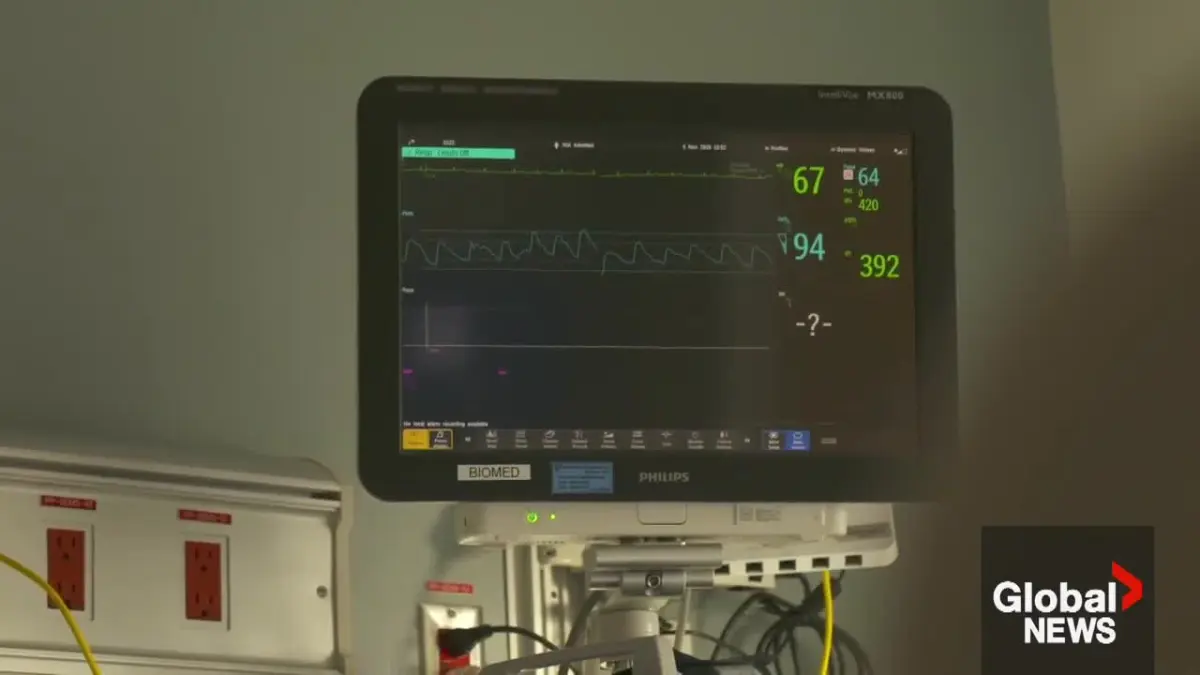News
Royal University Hospital ER given occupational health and safety contraventions
The Royal University Hospital (RUH) has been struggling with over capacity for the last few weeks and on October 2nd Saskatchewan’s occupational health and safety conducted an assessment of the emergency room.

“The biggest danger is the fact that that it’s impossible in a lot of instances to give safe patient care,” said Tracy Zambory, Saskatchewan Union of Nurses President.
The assessment found that the ER has 36 beds or chairs for patients while at the time of the inspection there was over 90 patients.
Additionally, 19 or more patients waiting to be admitted with no beds available would put the hospital at overcapacity, but at the time of inspection there was more than 60 patients in this situation.
“I mean, when you’re giving care in chairs in the emergency room and what we’ve done and we have to be very careful of this as the public when we when we hear words like treatment chairs in the waiting room. But that’s not a treatment chair. That’s actually just a plain old chair. But there’s nowhere else in the in the in the place to put someone. So, they’re actually giving their treatment in the chair in the waiting room,” said Zambory.
The inspector asked if there was a plan or protocol in place for when overcapacity issues arise but was informed there was no plans in place.
“In fairness to the people that are there, they feel like they’ve got to pull out every single stop and all and use all of the tools in their toolbox to try to find their way to some sort of safety in being able to practice in in the emergency room environment because it has become, you know, a battle zone of danger, not just for the people that have work there, but definitely for the patients who are coming in,” said Zambory.
The inspection also found that the overflow of patients was causing the safe way of entering or exiting different areas of the hospital to be obstructed.
Additionally, the nurses were navigating the overcrowding with medical equipment and not having adequate space to administer care without compromising the nurses working posture, adding that in minor assessment rooms, patients were doubled up in already small stations causing nurses to awkwardly reach for equipment creating limitations on good body mechanics.
The overcrowding of patients around the nursing desk was minimizing the workers’ ability to safely position themselves without compromising their posture.
“While the contravention is a good thing, unfortunately it just continues to happen because we haven’t dealt with the root issues, the root causes as to why we’ve gotten ourself into this situation,” said Zambory.
The hospital in the report is required to mediate the issues by Nov. 1.
The required adjustments include developing a safe system of work to reduce risk of injuries due to over crowing, removing obstructions from the hallways, nursing stations, triage areas and patient observation rooms and ensuring that workers have adequate space.
The Saskatchewan Health Authority said in a statement to Global News that it “is committed to addressing capacity pressures in emergency departments in Saskatoon. While we recognize that emergency department (ED) volumes can fluctuate, recent weeks have seen increased demand exceeding our average volumes….”
The authority added that it “acknowledge(d) that a recent inspection of the Royal University Hospital ED by the Ministry of Labour Relations and Workplace Safety, conducted during a time of high capacity pressures, has resulted in an Occupational Health and Safety contravention. The SHA is taking swift action to address this issue and remains committed to providing a safe environment that supports the delivery of high-quality patient care.”
SHA said it is “grateful for the dedication of SHA staff and physicians in Saskatoon’s emergency departments, who continue to prioritize patient care despite these challenges.”
The SHA added that while it is “taking immediate steps to alleviate current capacity pressures, (it is) also launching a long-term planning process to meet rising patient demand — the Saskatoon Capacity Pressure Action Plan.”

-
 Saskatchewan NDP promises to spend additional $1.1 billion on health care
Saskatchewan NDP promises to spend additional $1.1 billion on health care -
 Saskatchewan health-care workers missing upwards of $1,000 in wages
Saskatchewan health-care workers missing upwards of $1,000 in wages -
 NDP FOI shows over 8,600 days of health-care blackouts across rural Sask. over five years
NDP FOI shows over 8,600 days of health-care blackouts across rural Sask. over five years
Our Recent News




